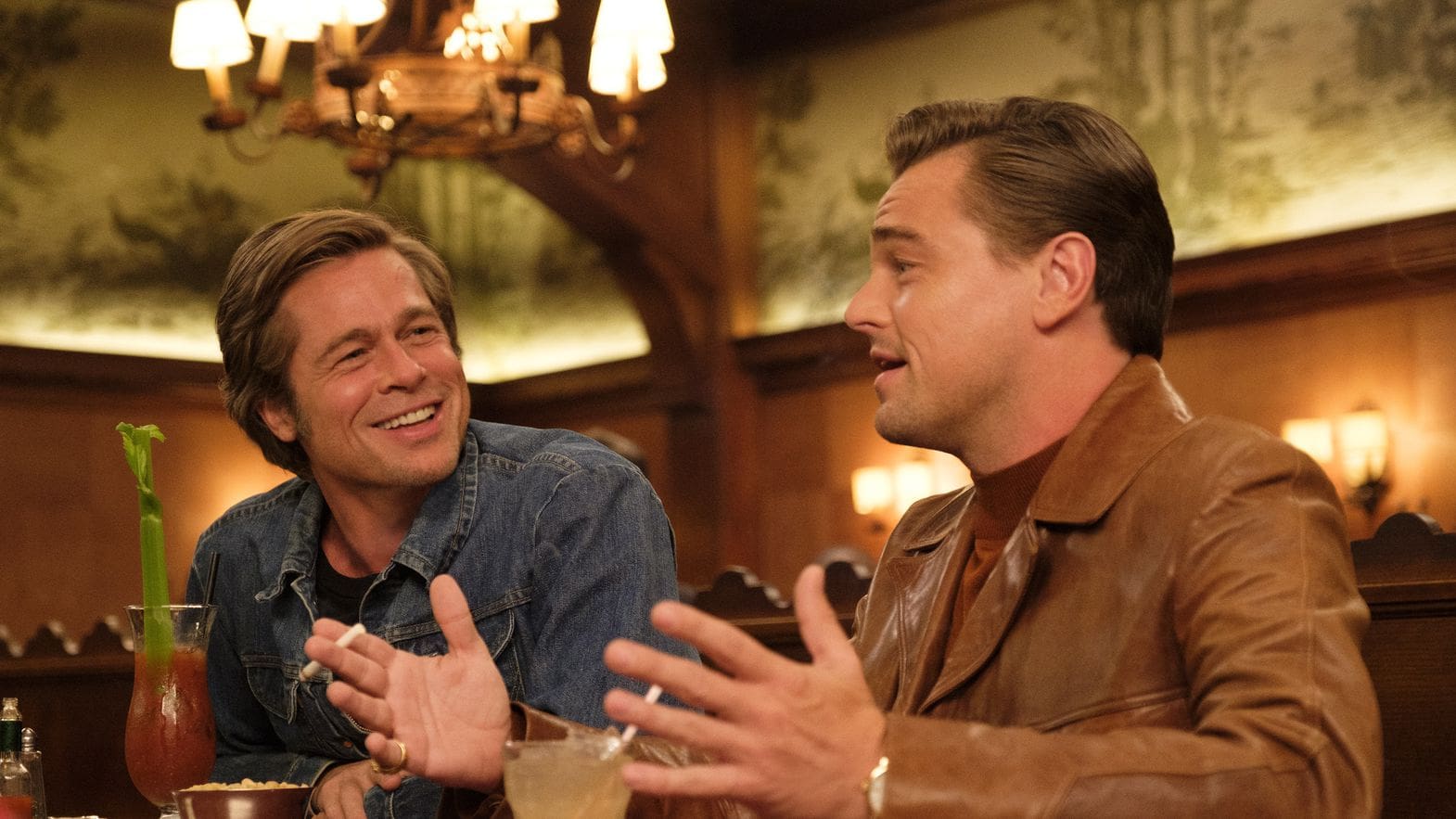
It’s a bit of a bold statement to say Once Upon a Time in Hollywood is Quentin Tarantino’s most interesting film. The man has literally made his career making interesting movies filled with insanely memorable characters and dialogue.
Yet, if you look into his filmography, Tarantino has always worked within the confines of a very specific genre. Pulp Fiction, Reservoir Dogs and Jackie Brown are urban crime/caper films. Inglorious Basterds is a war picture, Kill Bill Volume 1 is a kung fu pic, Death Proof is obviously a grindhouse film, and obviously Django Unchained, The Hateful Eight, and in essence Kill Bill Volume 2 are Westerns. So for the past 25 or so years, we’ve become accustomed to Tarantino’s films being his take on/subversion of a very specific genre.
Once Upon a Time in Hollywood is not this at all. While it’s inherently a Tarantino film — due to the familiar cast, freewheeling narrative and dialog, deep cut soundtrack, and being flooded with the wink and nod references and nostalgia — it feels way different than anything else he’s done. There’s no expectations we have going into this film because we haven’t seen “this type” of a movie before. We’re not walking into a QT rendition of a Western, or war picture, we’re set on a journey in Quentin Tarantino’s imagining of 1969 Hollywood.
This journey is extremely enjoyable to watch. In fact, for the majority of the film, you could say it’s one of the easiest Tarantino films to watch. The easiness could be attributed to the distinct lack of explicit explosions of violence, and a numbing deluge of profanity usually found in his films. But, the real reason for its easiness, and frankly the enjoyability of the film is because it’s a comedy. This film genuinely is peppered with a ton of truly funny scenes, and the performances of Brad Pitt and Leonardo DiCaprio only bolster the comedy of the film, as both of them quite possibly deliver their finest comedic performance to date.
One of the criticisms Tarantino has received about this film (and others) is the lack of dialogue for his female characters. And if you’re wondering if that’s the case here, it absolutely is. Margot Robbie is given very little to say here, as is virtually every female in the film. However, Robbie as well as Maya Hawke and Dakota Fanning, and to an extent Lena Dunham, take what little they are given and elevate to levels their dialogue does not deserve. Frankly, the movie might have been better if Robbie was given more to say because her presence onscreen is undeniable, and would’ve added so much to the film.
Yet, there’s an inherent problem with Once Upon a Time in Hollywood — what’s the point of it all? The luxury Tarantino has with working in specific genre films is that there’s established rules in these films. Tarantino has had to follow these rules because they have to be followed in order for his subversion of the genre to work.
Here there’s no safety net of pre-ordained rules, so you’re often left wondering where the hell the film is taking you throughout. Of course, once you get to the film’s undoubtedly divisive conclusion you’re stuck wondering what was this all about. Was this just Tarantino’s love letter to this era of film and TV? Was this a satire of that era? Was this his fan fiction for the Sharon Tate murder? So many of these thoughts are contradicted by the ending of the film, so it’s really hard to figure out the director’s message, motive, or mission.
Does this detract from the film? Absolutely. As a filmgoer you want to know the point of what you just watched, and I’m not sure that point was made clear enough at all. Would a second viewing possibly clear this up? The film definitely needs (and inspires) a rewatch. But ultimately, this cloudiness hamstrings the film from being truly excellent.
However, this does not stop this film from being really good, because there are so many aspects of the film that are undeniably fantastic. As mentioned previously, DiCaprio and Pitt both do excellent jobs as the lead characters. For DiCaprio, this might be his best performance in quite some time. He’s able to blend a comedic sensibility he rarely shows and is able to punctuate it with that explosive drama he’s renowned for. Pitt, on the other hand, plays his character a mash-up of Aldo Rayne meets The Dude, and it’s such a likable character.
Unsurprisingly, the cinematography here is just jaw-droppingly good. There’s one scene where the camera is shooting a party at The Playboy Mansion Grotto overhead, and it’s just breathtaking to watch. As you’d also expect from a Tarainto film the soundtrack here is flawless. And of course, a film about a bygone era would not feel authentic and lived in if the production values were not out of this world, and they absolutely are here.
Once Upon a Time in Hollywood is a good movie. In fact, it’s a very good movie with high rewatchability, that if you’re a Tarantino you need to watch, and if you’re not, you’ll actually really dig. It’s not your prototypical Tarantino film, and for this type of movie, that’s actually a very good thing. However, the good to great things about this film, nor Tarantino’s cache, cannot sweep the issues the film has under the carpet.

